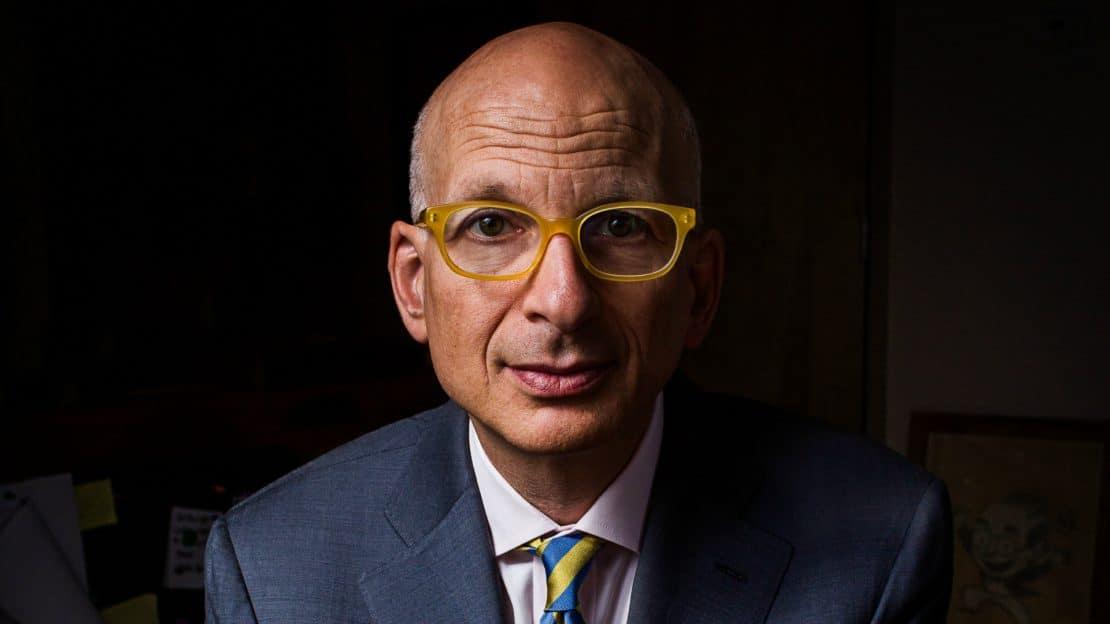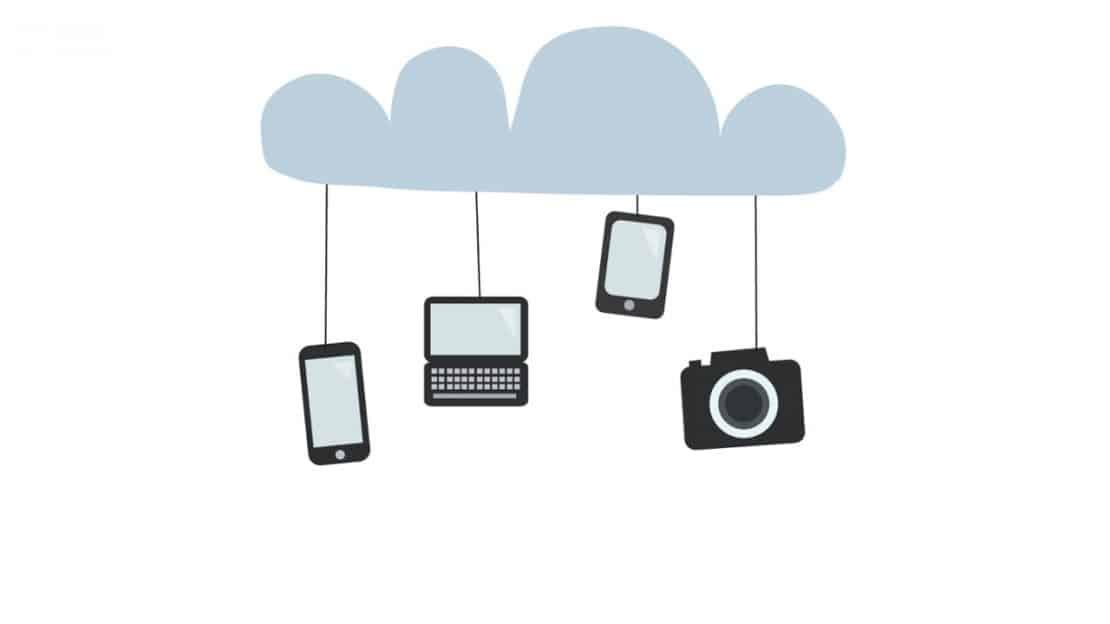29Aug2016
A fifty-minute drive away from Midtown Manhattan, in an area known as Hastings-on-Hudson, a downpour pounding the city streets is forcing everyone without an umbrella to run under the nearest roof. Stepping into the elevator; Seth Godin is catching his breath – not because of sprinting in the rain but because of a rush caused by a pit stop at a bakery. ”Barely made it on time,” Godin says, carrying a bag of cookies. Only a minute later he is already in the zone, fiercely typing away at the external keyboard of his MacBook Air. This ability, to quickly transition his energies onto the written word, has resulted in 17 books and over 5,500 blog posts over a 30-year career.
For Godin, there’s no such thing as writer’s block. The habit of showing up on a regular basis and of writing when it’s time to write trumps the occasional feelings of resistance every time. In fact, in Godin’s mind, resistance is a symptom that he is on the right track. ”You’re nervous and afraid because something might not work. We can’t fight it, but we can dance with it. If we use it as a compass it almost always points in exactly the direction we ought to be going,” he explains.
Godin, who is fifty-five, became known as a marketing author but has cherished the fear of freedom to the point that his writing has grown harder to categorize. The path towards the more philosophical, almost poet-like texts began when Godin documented his ideas on delivering anticipated, personal and relevant messages that people want to get, thus revolutionizing the world of marketing.
1999: Permission marketing
”Marketing and advertising were the same thing then, and people thought that if you had money, you could interrupt whoever you wanted,” Godin recalls.
He had started an internet company in 1995, called Yoyodyne, based on only contacting people who wanted to hear from the company, but was having trouble explaining to big companies and clients why it worked. It would take months for Godin to make a sale so, since he understood how to make books, he made a book about it. This led to quite a journey.
Godin got kicked out of the Direct Marketing Association because ”they didn’t approve of my heresy.” However, a few marketers started to embrace the concept, and soon many internet companies started to use the idea as the sole basis of their marketing. Billions and billions of dollars in value was created and still today the concept of permission marketing lives strong through its close cousin ’inbound marketing’.
”I’m not responsible for all the email you get in your inbox, but the email you want to get; I’ll take a little bit of credit for that,” Godin chuckles.
But, if good results in marketing were so easy to achieve, everyone would succeed. In the world of 90-day justifications, figuring out the long game is still easier said than done. ”Marketing is fueled by adrenaline. It’s fueled by urgency and emergency. We see it at its worst in political campaigns, but we see it everywhere. We don’t have time to do it right, but we always have time to do it over. We overcome our fear by creating an emergency. But this endless emergency is caused by the fact that we’re not patiently working our way to a place of relevance. In fact, urgent patience, not hiding, but patiently building an asset is probably the single most overlooked thing that marketers fail to do,” Godin sighs.
2003: Purple Cow
In 2003, Godin’s thesis about half-measures simply not being enough, attention being the game, and remarkability living on the edges, manifested itself in the book Purple Cow. As a natural continuum to Permission Marketing’s ’May I have your attention, please?’ -approach, Purple Cow got to the heart of what it means to grab someone’s attention by being remarkable.
”People only buy from you for two reasons. They know you exist, and they trust you. Awareness and trust, that’s all,” Godin encapsulates and continues, ”The thing about awareness is they’re not making any more of it. The thing about paying attention is if I pay you my attention, I don’t have it anymore. It’s gone forever. So we’re getting more and more focused on keeping our attention to ourselves, not giving it to whoever shows up. Marketers have a history of just taking attention and wasting it.”
By going forward, Godin believes that those marketers who treasure attention, who cherish it, who grow it and nurture it, will do better than the ones who are just racing around with an emergency. However, overcoming of one’s narcissism might be an even bigger obstacle to getting people to care than running around like a headless chicken.
”The biggest mistake marketers make over and over again is the hubris of selfishness. The narcissism of ’I made this. It was really hard. You should look at me. I own, and you owe me your attention’. There’s no humility there. There’s no generosity there. There’s no connection there. So, that is the big shift that we need to make. We need to make this shift away from having a tantrum and acting like a three-year-old to patiently earning the attention of the people we seek to serve,” Godin explains.
2005: All Marketers Are Liars
There are a thousand ways to tell a story, but is there a true way? Maybe not. The truth is elusive. However, worldviews are changed by telling stories. So, who’s truths do we believe? Although Godin was set to explore the underlying questions of storytelling in the book he considers the most important book about marketing he has written, he fell short when naming it. The otherwise catchy cover implied the book to be about lying, and that marketers were bad people. Luckily, Godin got to do a retake and the new cover, All Marketers Tell Stories, hit the streets in 2010.
Even though consciousness and the human mind are still some of the greatest mysteries of science, understanding how humans process information and how the story being told fits into the listener’s existing worldview are fundamental building blocks for a marketer. The latter can only be achieved by being culture smart.
“Stories need fertile ground to grow in, and that comes from our culture. The culture is all around us. Culture destroys everything. Culture beats the truth. Culture beats math. Culture beats any offer you can make. So, we have to understand the culture, and we have to understand the worldview. We have to understand the perspective of the person we are talking to,” Godin emphasizes and explains that it’s the marketer’s job to tell a story that resonates with people who are hearing it. If done properly, it wouldn’t take progressive ideas, like doctors washing their hands before they delivered a baby, thus preventing the deaths of millions of babies, to take 20 years before others would start acting on them. If only Ignaz Semmelweis, Hungarian doctor and the early pioneer of antiseptic procedures, would have been a better storyteller.
2008: Tribes
A tribe is any group of people, large or small, who are connected to one another, a leader, and an idea. Leadership has to come from individuals, and part of leadership is the ability to stick with the dream for a long time. Long enough that the critics realize that you’re going to get there one way or another, so they follow. From these premises arose Godin’s best-selling book. Tribes opened up a whole new audience for him as it resonated with people craving for leadership lessons. On a personal level, it was the first book where Godin got “at the heart of the change” he is “seeking to make in the world”. The book was about changing the status quo and not minding about the critics, at least if the only side effect of criticism is that you will feel bad about the criticism. Benefits of doing something worth doing far outweigh the bad feelings. The message of Tribes, that all of us are more powerful than we think, and all of us have the ability to make things better, became much more important for Godin than anything he had written before.
“I guess the way I interpret it is; I cried when I wrote Tribes, and I didn’t cry when I wrote Permission Marketing,” he says.
2010: Linchpin
If Tribes opened the gates of the leadership genre, Godin’s next bestseller, Linchpin was an ode to the indispensable workers that refuse to be average and pour all their energy, heart and soul into their work.
The idea of Linchpin comes down to the fact that work as we know it is now going away. That job, where you go to a building, stay there 40 hours, then go home, and do that again for 40 years before retiring, that’s gone. Efficiency as a competitive advantage no longer suffices. Someone always has more robots and someone is going to be cheaper. Then what do you have?
“Well, what you have is people. And the question is: do you have compliant people; people who do what they’re told, show up on time, get more efficient each day? Well, that’s not going to help you very much because that’s what you need in an efficient factory. Or do you have caring people, passionate people, connected people? Do you have people who act like they own the place? Do you have people who can look a customer in the eye and make a difference for that customer, because it seems to me that’s all you’ve got left,” Godin says and continues:
”Once it’s a robot, anyone can buy the robot. But that person, that person works with you – not for but with you. And no one else can have them as long as the two of you are dancing together. That’s where success lies. You don’t handle linchpins. You welcome them. You embrace them. You nurture them. The organization of the future doesn’t need a lot of people.”
What Godin thinks these organizations need is the kind of people who are willing to make a difference, who are willing to stand up and say, ’I made this.’ Linchpins, who are restless enough that if things are not kept great, they’ll leave because someone else wants them. “Isn’t it better to have someone so great, you would miss them if they were gone than it is to have mediocre people who you are confident have no place better to go?” he asks.
2012: The Icarus Deception
‘I know it’s over,’ Icarus says to the sun. Indeed, the wings melt causing Icarus to plummet into the sea and drown. The lesser known part of the Greek myth tells that on top of warning Icarus about flying too close to the sun, his father, Daedalus, also told his son not to fly too low as the seawater would dampen the wings. So, what if many of us are flying too low? In his most personal book, The Icarus Deception, Godin explains why all of us should become artists of our craft and share more of ourselves with the world. Flying too low, Godin believes, is the far more common failing. A couple of misunderstandings about skill and talent lie at the heart of the problem. First of all: Skill is something you learn. Talent is something you were born with.
“I will grant you that dunking a basketball is a talent. I will never be able to dunk a basketball. But with few exceptions, almost everything in our life is a skill,” Godin begins and soon continues, “I’m not going to get into the NBA, so let’s leave that off the table. For everything else, it’s about skill, and skill is easier to acquire now than ever before.”
So, the first mistake, according to Godin, is to let yourself off the hook by saying, ‘Well, I wasn’t born able to do that.’
Another thing about talent, or ‘the talent lie’, as Godin puts it in The Icarus Deception, is the twisted way we look at talent in our organizations.
“It’s not a lie because there’s no talent out there. It’s a lie because many organizations only pretend that they are looking for talent,” Godin writes.
What he means is that talent is wanted, but only as long as that talent is productive and predictable. Talent is wanted, but only if talent means more work product per dollar, more effort per day, more of what we think we are paying for.
According to Godin: “We can’t hope for a boss or a colleague or an employee who is one in a million and then demand that this person have no grit; do nothing to slow down the assembly line. It’s one or the other. If the organization desires efficiency, it must embrace the status quo and avoid grit at all costs. On the other hand, the organization that wants growth and seeks to create value, has no choice but to hire linchpins. The ones we can’t live without. The ones that stand for something. The ones with grit.”
2016: …
Continuing his work in writing about treating people with respect, changing economy and ideas that spread, Godin says he is now spending a lot of time “thinking about how deeply the fork in the river is getting dug into the ground.” He beckons to the right and left with his hands, explaining that on one side are the connected people who go ever deeper doing the research, looking at what works, testing, measuring, figuring out what’s going to pay off for our culture. And on the other side are emotion driven, knee-jerk, fear-based reactions of ‘pick your own truth’. The problem he sees with ‘pick your own truth’ is that it leads to conspiracy theories, which leads to ever more ‘pick your own truth’. “And sooner or later, you are just living in Ga Ga land where there’s no real connection to the things you believe and do, and what actually works,” he says.
“I think we have to figure out how to bridge these gaps early and often to help people realize that the things we take for granted, that we can be warm and out of the weather and have enough to eat and all these other things, they came from a philosophy of test and measure. A philosophy of paying it forward and building a culture. I feel ever more urgency that we need to do that now,” Godin finishes.
“I got to run. Do you want some books? Or cookies?” Godin asks.
Five minutes later Godin is gone, but his legacy remains. Books and a bag of cookies. And only the cookies have a ‘best by’ date.

 by:
by: 
